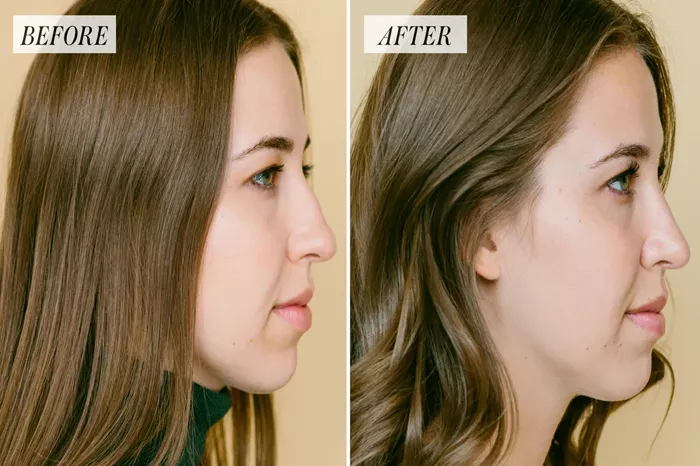Rhinoplasty, commonly referred to as a nose job, is a surgical procedure that modifies the shape and structure of the nose. It is often pursued for aesthetic reasons but can also address functional issues such as breathing difficulties. The question of whether a 17-year-old can undergo rhinoplasty involves various factors, including medical guidelines, psychological readiness, and parental consent.
Medical Guidelines for Teenage Rhinoplasty
The American Society of Plastic Surgeons recommends that rhinoplasty should only be considered once the nose has fully developed. For girls, this usually occurs by age 15 or 16, while boys may reach full nasal maturity by 17 or 18. This guideline is crucial because operating on a nose that has not fully developed can lead to complications and potentially necessitate additional surgeries in the future.
Psychological Readiness
Beyond physical maturity, psychological readiness is a significant consideration. Adolescents are in a crucial stage of developing their self-identity and self-esteem. A nose job can profoundly impact an individual’s self-image, either positively or negatively. Therefore, it is essential to ensure that the desire for surgery comes from a well-considered and personal decision rather than external pressures or fleeting insecurities.
Parental Consent and Involvement
For a 17-year-old to undergo rhinoplasty, parental consent is typically required. This legal requirement ensures that parents or guardians are fully aware of the procedure, its risks, and its potential outcomes. Additionally, parental support can provide emotional stability for the teenager during the pre-and post-surgery phases.
The Consultation Process
The first step in considering rhinoplasty is a thorough consultation with a board-certified plastic surgeon. During this consultation, the surgeon will assess the physical and psychological readiness of the teenager. They will also discuss the patient’s motivations and expectations to ensure they are realistic. This step is crucial in determining the suitability of the procedure for the individual.
Physical Health and Medical History
A comprehensive evaluation of the teenager’s physical health and medical history is also necessary. Conditions such as diabetes, clotting disorders, or previous nasal injuries may influence the decision to proceed with surgery. The surgeon will need to ensure that the patient is in good overall health and free from any conditions that could complicate the surgery or recovery process.
Understanding the Risks
Like any surgical procedure, rhinoplasty carries risks. These include infection, bleeding, and adverse reactions to anesthesia. There are also risks specific to rhinoplasty, such as difficulty breathing, numbness, and asymmetry. It is vital for both the teenager and their parents to understand these risks thoroughly and weigh them against the potential benefits.
Post-Surgery Expectations
Recovery from rhinoplasty can be a challenging process. Swelling and bruising are common and can take several weeks to subside. It is important for teenagers to have realistic expectations about the recovery timeline and the gradual nature of the final results. Patience and proper care during the recovery period are essential for achieving the desired outcome.
See also: Is Getting A Nose Job Painful?
Emotional Support
The emotional aspect of undergoing rhinoplasty cannot be underestimated. Teenagers may experience a range of emotions, from excitement to anxiety, before and after the surgery. Emotional support from family and friends can play a crucial role in navigating this period. Additionally, counseling or support groups may be beneficial for some individuals to process their feelings and expectations.
Case Studies and Testimonials
Hearing from others who have undergone rhinoplasty at a young age can provide valuable insights. Case studies and testimonials can offer perspectives on the decision-making process, the surgery itself, and the recovery experience. These stories can help teenagers and their families make informed decisions and set realistic expectations.
Ethical Considerations
Ethical considerations also play a role in deciding whether a teenager should undergo rhinoplasty. Surgeons must ensure that the decision is in the best interest of the patient and not influenced by external pressures such as societal beauty standards or parental desires. The primary goal should always be the well-being and autonomy of the patient.
Alternatives to Surgery
For some teenagers, non-surgical options may be a suitable alternative to rhinoplasty. Dermal fillers, for example, can temporarily alter the shape of the nose without the need for surgery. While these options do not provide permanent results, they can be a less invasive way for teenagers to explore changes to their appearance.
Long-Term Considerations
It is important to consider the long-term implications of rhinoplasty. The results of the surgery are permanent, and while most patients are satisfied with their outcomes, it is crucial to recognize that the decision will affect the individual for the rest of their life. A thorough understanding of the potential long-term impacts is necessary for making an informed choice.
Conclusion
In conclusion, a 17-year-old can potentially undergo a nose job, but it involves careful consideration of various factors. Physical maturity, psychological readiness, parental consent, and a thorough consultation with a qualified surgeon are essential steps in the decision-making process. Understanding the risks, setting realistic expectations, and having strong emotional support are also crucial. By considering all these aspects, teenagers and their families can make informed decisions about rhinoplasty, ensuring the best possible outcomes for both appearance and well-being.
Related topics:
How Does A Liquid Nose Job Work?
6 Things I Wish I Had Known Before Rhinoplasty
How Long Does It Take To Heal Nose Job?


